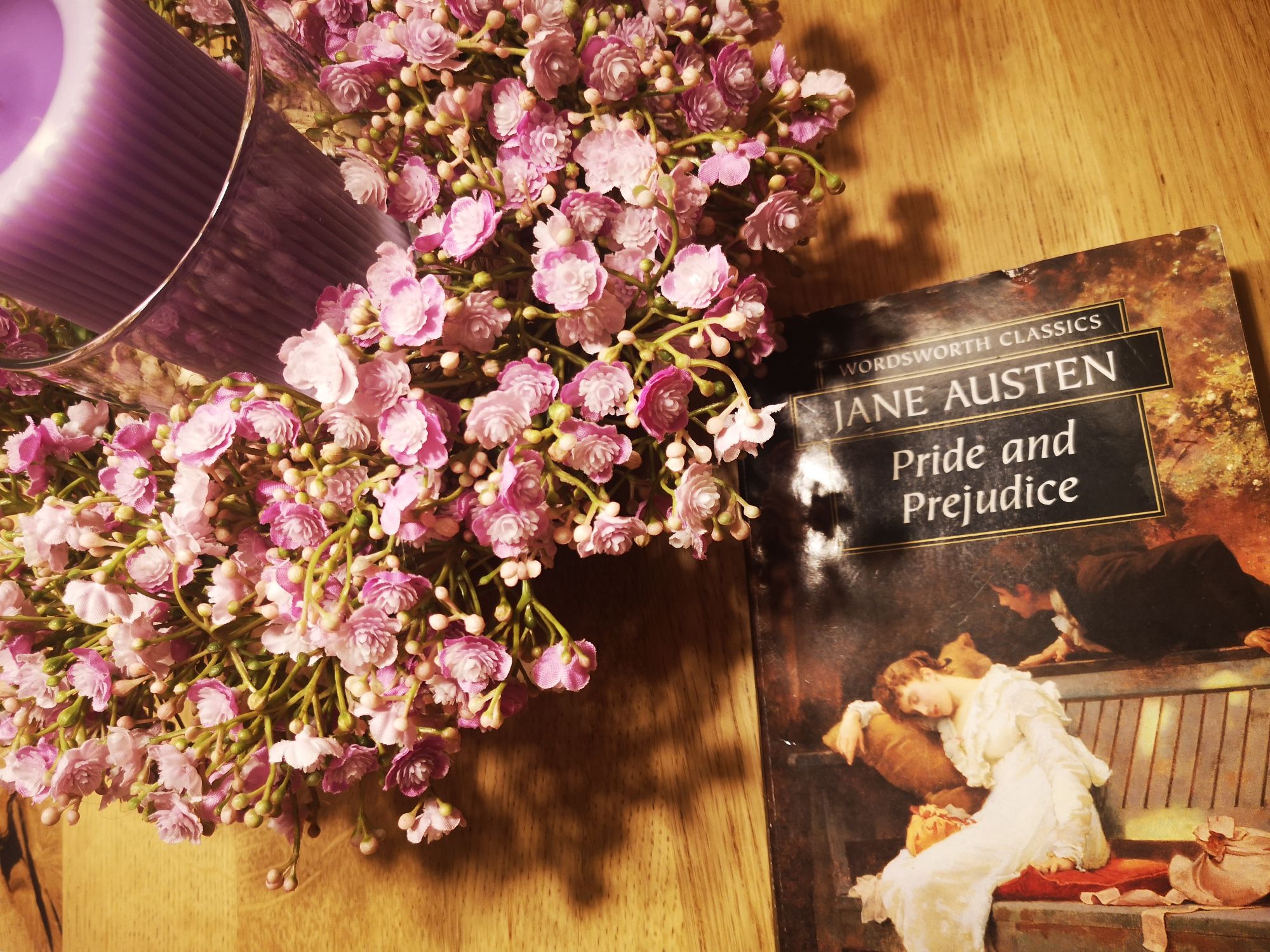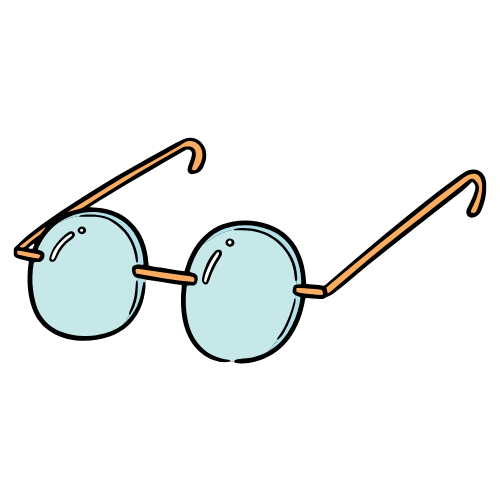Pride & Prejudice is the most insipid novel I have ever read. It is all talk, and impossible to follow at that. It is the story of rich man and poor woman who don’t like each other but somehow end up getting married. So why should I even read it? Well, Pride & Prejudice is Great Literature, even though the surface might trick you: all long sentences, drawing rooms, and people being “amiable” while secretly judging each other. But behind all that social ritual and slow-burn romance lies something else entirely: a sharp, brilliant character called Lizzie Bennet, who quietly hands you a guidebook for how to be bold, smart and yourself, all while acknowledging your own bad instincts.
what is pride & prejudice “about”?
Jane Austen didn’t write Pride & Prejudice to be just about one thing. The story is centered on courtship and marriage, but it offers much more than just romantic intrigue. It follows Elizabeth Bennet, a sharp, outspoken young woman and her evolving relationship with the proud and reserved Mr. Darcy. Their romantic story stands in the middle of the novel, but its richness comes from all the characters which populate this fictional version of a 19th century English community.
We might complain about the novel (especially on a youthful first reading!), but the truth is we are still reading it 200 years after it has been written. One reason for that is Austen’s ability to blend irony with empathy, giving us characters who are flawed, funny, and painfully real. She dissects the follies of vanity and first impressions, and the subtle workings of power — between men and women, between wealth and poverty, between individual choice and social constraint. Marriage is not simply a matter of love, but of financial security, survival, and reputation. Behind the witty dialogue and elegant prose lies a story about learning to see clearly, speak honestly, and choose wisely, even when the rules are stacked against you.
how to be bold, smart and unapologetically yourself
From the very beginning, from the first moment I may almost say, of my acquaintance with you, your manners impressing me with the fullest belief of your arrogance, your conceit and your selfish disdain of the feelings of others, were such as to form that ground-work of disapprobation, on which succeeding events have built so immoveable a dislike
I must admit that on my first reading, about seven years ago, I didn’t get what the big deal about Elizabeth Bennet was. She meets the proud Mr. Darcy, makes a few clever remarks at his expense, and eventually sees a side of him that does make her fall in love. It seemed like a sharp-tongued girl meets brooding man, and somehow they make it work. But Pride & Prejudice is far less a love story than it is Elizabeth’s journey toward recognizing her own blind spots. In a society that prizes first impressions and rehearsed interactions, Lizzie’s strength isn’t just her wit — it’s her willingness to reconsider herself. She begins the novel armed with confidence, but it’s only when she lets go of her inherited prejudices that she becomes a better version of herself.
trust your instincts, but check your bias
Mr Wickham was the happy man towards whom almost every female eye was turned, and Elizabeth was the happy woman by whom he finally seated himself; and the agreeable manner in which he immediately fell into conversation made her feel that the commonest, dullest, most threadbare topic might be rendered interesting by the skill of the speaker.
Elizabeth Bennet has no shortage of suitors – self-important Mr Collins, proud Mr Darcy and charming Mr Wickham. In each of the three relationships Lizzie has an instinct which tells her with what kind of person she has to deal with. She immediately recognizes what Mr Collins is after and is not wrong in condemning the pride of Mr Darcy. Yet the story is quite different with Mr Wickham. His easy manners, good looks, and ready confidence flatter Lizzie’s sense of judgment. She believes him not just because he seems sincere, but because his story confirms what she already wants to believe about Darcy. Elizabeth is not foolish, nor is she shallow — she is simply human. Trusting yourself is essential, but wisdom begins when you start seeing your own blind spots.
not all attention is worth your energy
It does not appear to me that my hand is unworthy of your acceptance, or that the establishment I can offer would be any other than highly desirable. My situation in life, my connections with the family of de Bourgh, and my relationship to your own are circumstances highly in my favour; it is by no means certain that another offer of marriage may ever be made you.
In 19th century England marriage is seen as a woman’s primary achievement and Elizabeth rejects more one very eligible suitor: Mr. Collins. Since Mr. Bennet has no sons, his property is to be passed down to the closest relative of the male sex, namely Mr. Collins. He does the family the favour of asking their second eldest daughter’s hand in marriage, yet she stubbornly refuses. Elizabeth’s refusal goes beyond personal preference; it’s a radical assertion of dignity. He’s financially stable, offers security, and has the backing of Lady Catherine de Bourgh, Mr Darcy’s aunt and possibly future mother-in-law — and still, she says no. Her father respects and encourages her choice, but her mother doesn’t see beyond the social and economic advantages such a marriage would bring. Elizabeth is aware that marriage is a necessity, but she is not willing to trade herself in. Her strength lies in her ability to put up with social and family pressure without giving in to it.
speak up and cause a scandal when it’s worth it
He is a gentleman; I am a gentleman’s daughter; so far we are equal.
Some of my favourite scenes of the novel are the interactions between Lizzie and Mrs Catherine de Bourgh, Mr Darcy’s aristocratic aunt. Mr Darcy is set to marry his cousin, Mrs de Bourgh’s daughter, since early infancy, and the marriage is supposed to reunite and keep lands and property in the family. From the outside, Lady Catherine represents everything Lizzie is expected to respect: wealth, age, social rank, and family influence. But when Lady Catherine intends to intimidate Lizzie into letting go of Mr Darcy, the young woman stands up and defends her love, her family and her social position. She refuses to be managed — even by someone with immense social power — an act which still resonates today, in a world that often rewards politeness over principle.
Pride & Prejudice isn’t just a romance between a rich man and a clever woman who somehow end up together. And it’s certainly not all talk with nothing to show for it. It’s a novel about learning to see clearly — both others and yourself — in a world obsessed with appearances. Lizzie gets things wrong. She changes her mind. She speaks up when it’s inconvenient. And she refuses to settle — not for a man, not for money, and not for anyone’s expectations. That’s what makes her unforgettable. And that’s why, 200 years later, she’s still worth reading.






your thoughts?